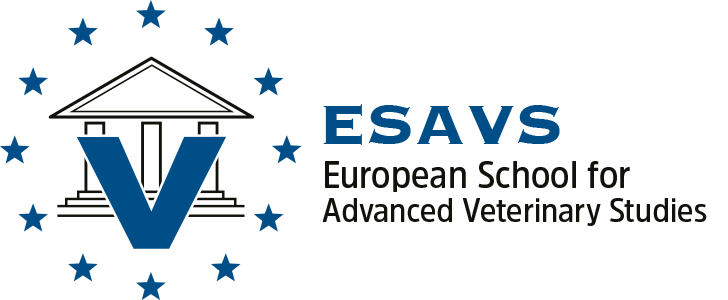Clinical Nutrition I
Applied Clinical Nutrition - Basics
Principal Course Master(s):
Course Overview
This first, mandatory course in clinical nutrition provides a comprehensive refresher on nutrition physiology and its clinical applications. Participants will review the anatomy and physiology of the digestive tract, digestion, and nutrient absorption across species, linking these processes to health and disease.
The course emphasizes practical nutritional assessment – from obtaining feeding histories and identifying common mistakes to advising owners on diet types and evaluating commercial pet foods. Topics include pet food production, ingredients, labeling, legal regulations, as well as common myths and misunderstandings about commercial pet food.
Participants will also learn the principles for calculating home-made diets using ration calculation software for dogs and cats of all life stages. Feeding trends from raw feeding (“BARF”) to vegetarian and vegan feeding will be evaluated.
Workshops and case discussions will strengthen practical skills like body condition scoring and diet evaluation.
Course Program (Subject to change)
Monday, 18 May 2026
08:30 – 09:00 Welcome and Registration
09:00 – 09:45 Introduction: Anatomy and physiology of the digestive tract / Welcome Quiz
09:45 – 10:30 Comparative physiology of digestion
10:30 – 11:00 Coffee Break
11:00 – 11:45 Feed analysis
11:45 – 12:30 Which patients require a diet? Group discussion
12:30 – 13:30 Lunch Break
13:30 – 15:15 Nutrient Requirements
15:15 – 15:45 Coffee Break
15:45 – 16:30 Requirements, Energy
16:30 – 17:00 Food ingredients memory game, wrap up of the day
Tuesday, 19 May 2026
08:30 – 09:00 Recap from Monday ,Quiz
09:00 – 10.30 Practical role play: feeding history,calculating energy requirements
10:30 – 11:00 Coffee Break
11:00 – 11:45 Physiology memory game
11:45 – 12:30 Nutritional support/the owners´ perspective / Practical feeding management: group discussion
12:30 – 13:30 Lunch Break
13:30 – 15:00 BARF basics and discussion
15:00 – 15:30 Coffee Break
15:30 – 16:30 Feeding myths and trends
16:30 – 17:00 Feeding types, feeding behaviour, cat special; wrap up
Wednesday, 20 May 2026
08:30 – 09:00 Recap from Tuesday
09:00 – 10:30 Life stages – from the growing to the geriatric patient
10:30 – 11:00 Coffee Break
11:00 – 12:30 Home made diet basics – Futtermedicus programme intro, calculate by hand
12:30 – 13:30 Lunch break
13:30 – 15:00 Calculations workshop, healthy pets
15:00 – 15:30 Coffee Break
15:30 – 16:30 FEDIAF guidelines and quality assessment guest speaker Dr. Thomas Brenten
16:30 – 17:00 Wrap up
Thursday, 21 May 2026
08:30 – 09:00 Recap from Wednesday
09:00 – 10:30 Facts and fiction about commercial diets
10:30 – 11:00 Coffee Break
11:00 – 12:00 Client communication /compliance
12:00 – 12:30 Certificate Programme Intro
12:30 – 13:30 Lunch break
13.30 – 15:30 Production / Quality Management guest speaker Dr. Anna Sutton
15:30 – 16:00 Coffee break
16:00 – 16: 30 Toxic foodstuff
16:30 – 17:00 Wrap Up.
Friday, 22 May 2026
08:00 – 08:30 Recap from Thursday
08:30 – 10:00 Legal basics / declaration
10:00 – 10:30 Coffee Break
10:30 – 11:45 Declaration
11:45 – 12:30 Cat special – nutrients
12:30 – 13:30 Lunch break
13:30 – 14.15 Declaration / Claims workshop evaluating commercial products
14.15 – 15.00 CASUS case
15:00 – 15:30 Coffee Break
15:30 – 17:00 take home workshop wrap up / summary/ certificates & goodbye
Clinical Nutrition I
18/05/2026 - 22/05/2026Location:
Vienna, AustriaVenue:
Seminarhotel Springer Schlössl Tivoligasse 73, 1120, Vienna, Austria
Tuition fee*:
Early registration fee*:
Early registration deadline:
Total hours:
ATF hours (AU, DE, LU, CH):
ECTS credits (Master & Certificate):
Related courses
Clinical Nutrition II
Applied Clinical Nutrition: Skin & Allergies, Urinary Tract, Orthopaedic Disease

